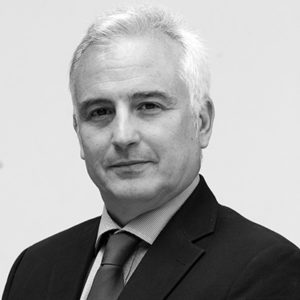
Earlier this summer, I wrote about the electoral processes then underway in Europe and in Greece, noting the prevailing uncertainty surrounding their outcomes and the broader European trajectory amid ongoing geopolitical and economic developments worldwide. Recent events across the Atlantic further highlight this uncertainty and how quickly things can change, be it by chance or not. The electoral process in the United States is nearing its final stage and its results will have far-reaching impacts across areas, from geopolitics and the economy to energy, the environment and many more—including, perhaps, transatlantic relations, which have been a cornerstone of international stability for years.
The stability we enjoy is built not only on democratic values and geopolitical alliances but also on fundamental human principles. And yet, as I have often noted, in today’s volatile world even such longstanding constants and core values are being challenged and are being increasingly replaced by greed, selfishness, an obsession with power, and growing apathy toward global happenings, a dominant discourse that is becoming entrenched as a new norm, fostering modern ghettos and societal divisions. Are these changes driven by agendas or have they been brought about by longstanding conditions and assumptions simply reaching their culmination? Is this all part of an evolutionary process? Will things just go on in some new form, as per Heraclitus’s assertion that “everything flows”? And if so, why are we not breaking the rules? But breaking the rules should not mean subverting human values but rather overturning the trends and parameters that lead to such a state, challenging the “don’t mess with my circles” mindset that’s prevalent in many societies today.
And what is the role of technology in all this? The digital revolution has democratized access to information and empowered individuals and communities worldwide while also facilitating the spread of misinformation and contributing to polarization and social fragmentation. Meanwhile, the global climate crisis is highlighting our interconnectedness and the need for collective action, and sustainable development and environmental stewardship must become central to our political and economic agendas. And we must always consider the human aspect of these changes and the strain put on the social fabric of our communities as economic inequalities widen and social cohesion weakens. Addressing these issues requires more than just policy changes; it demands a cultural shift toward empathy, solidarity, and inclusive growth.
I hope my philosophical reflections have not been tedious to you. We all ponder such matters at some point, especially during holidays when we have the luxury of time to rest and think. These moments of contemplation can inspire us to envision and work towards a better future for all.
ELIAS SPIRTOUNIAS
Executive Director


